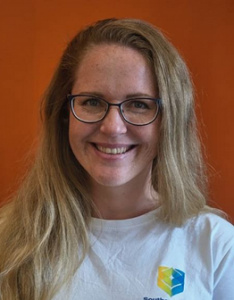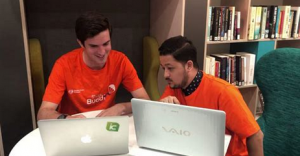Using Reflection as an Evaluation Tool

In evaluating and benchmarking the Study Buddi peer support program at Southern Cross University, the usual indicators are applied. In addition to the collection of data which provides us with statistics:
- number of visits,
- time and day frequency, and
- student demographic information regarding level of study, location and course.

The program tracks what drop-in students ask about, the type of advice provided and also surveys student visitors about their experience. All these indicators show the Study Buddi program is growing, popular and successful.
A new tool is resulting in program adaptations for future success.
When Covid-19 forced our university programs online, including Study Buddi, the previous on-the-spot discussions with Study Buddies about their interactions with students during or after their shift closed down. In the absence of this immediate feedback and review opportunity, we introduced a new ‘self-reflection’ evaluation tool. Each Study Buddi team member completes a brief reflection after their shift according to template prompts. The prompts ask:
- What went well?
- What happened? What was challenging? How did you deal with the challenge? What did you learn for next time?
- General feedback (any student comments, how you’re feeling after your shift)
- Suggestions for further discussion or training.
These reflections have become a significant evaluation tool in overviewing how team members are coping on the front line, how the program is evolving in the online space, as well as raising any needs to address in shifting to online peer support.
Two themes soon became apparent. The first was that the peer leaders were unsure about how to deal with higher levels of student stress and anxiety from students studying online, feeling disconnected and facing confusion. Our Study Buddies were on the front line, fielding peer requests for support.

As one Study Buddi reflected: ‘We deal with a complexity of emotions in our work and I love that we are helping students as the first point of contact. We may be able to spot the signs to refer people to the best options for support’ (Suha 21/7/20)
Another reflected on the importance of knowing how to deal with ‘students who are carrying worry and fear about their uni work’ (Sam 23/7/20).
Their reflections highlighted the need for greater awareness of the range of university support services, including mental health and wellbeing; the actual services provided and how to refer students. This recognition lead to changes in the program and a series of guest speakers were invited to our fortnightly online team meetings.
Representatives from Counselling, Student Advocacy, Wellness, Chaplaincy and partner institutions spoke at team meetings, offering information, resources and referral protocols. The Study Buddies listened thoughtfully and asked relevant questions as they learned about some of the signs to look for and strategies to deal with student anxiety. The team meetings were recorded and eagerly anticipated. One Study Buddi reflected ‘I loved the training with the counsellor about mental health’ and noted ‘it’s great to have people come in to talk about the different resources and services’ and agreed ‘It’s good to know how best to support students from our side’ (Suha 28/7/20).
In the online environment, knowledge and training about other support services became an innovative and necessary part of our program as the reflections pointed toward this need for professional development. With this heightened awareness, Study Buddies are now promoting a variety of resources and support services, and referring drop-in visitors to both of these, as needed. The team feels better equipped to handle a range of challenges.

The second theme arising from the reflections was the positive reciprocal nature of helping other peers. The team reflections included comments like: ‘It was miraculous that through helping others, I help myself too’ (Janice 3/8/20); and ‘I felt really good after my shift and had such a great time helping and really felt like I made a difference. It is so rewarding when you can reinspire a student when they are feeling down and steer them back on the right direction’ (Suha 1/9/20).
Another team member wrote that students were feeling overwhelmed but grateful that they could ‘come into Study Buddi as a safe space and be treated as an equal and feel free to express their concerns’ (Sam 20/8/20). The Study Buddi reflections revealed words like rewarding, inspiring, dynamic, greatly appreciating, feeling good, and really satisfying when describing how they felt after helping other visiting students during their shift.
One team member reflected ‘I felt that I learnt more and more after each shift not only by providing assistance to other students but also gaining opportunities to improve my own studying skills’ (Janice 21/7/20).
Reflection as a purposeful activity, enhanced the Study Buddi program by providing vital feedback during an innovative phase of ‘onlining’ the program. Peer leaders were on the front line yet needed upskilling on the types of university services available and how to best refer anxious peers during these unprecedented pandemic times.
By introducing a series of guest speakers from various support services and institutional partners, our program raised awareness of relevant services, resources and strategies to handle challenges. The guest speaker program not only facilitated mindfulness, professional development and action plans for the future but also added to each team member’s communicative competence and know-how.
Reflection as an evaluation tool highlighted the mutual benefits of peer support as well as the valuable reward of participation for both peers. Reflection provided engagement in creative problem-solving, enhanced professional development and ensured the program met the needs of the peer leaders as well as the students seeking support from the Study Buddies.
By S. Ashton-Hay; M. Jeffery; S. Freitag; J. Hsu; S. Timmis.
Southern Cross University

Leave a Reply